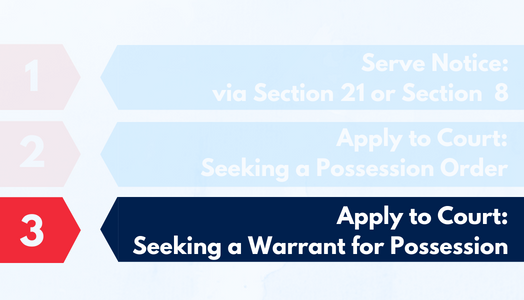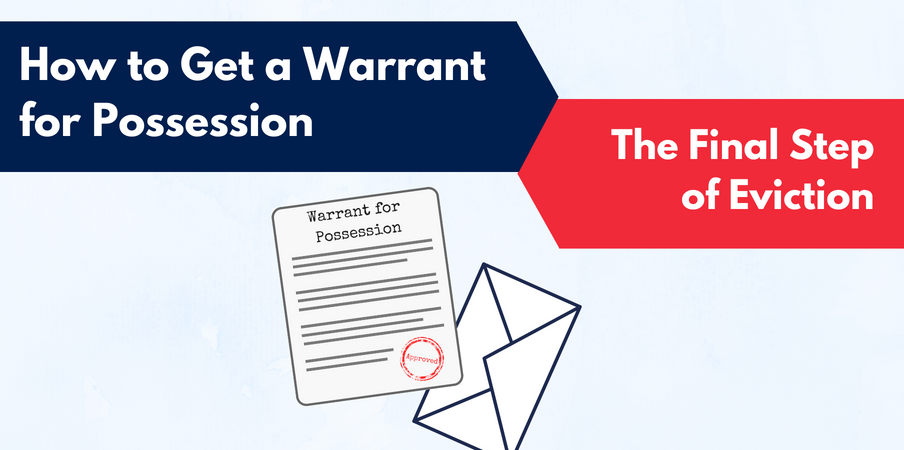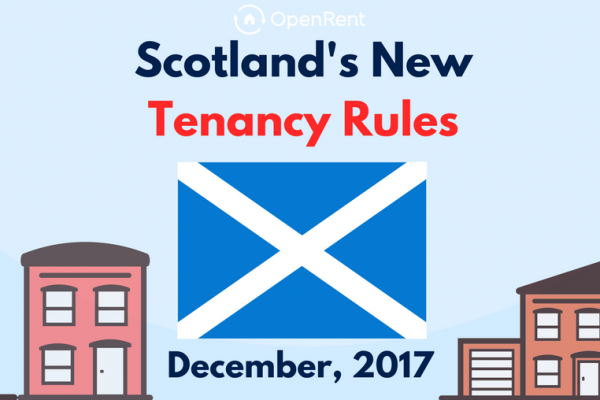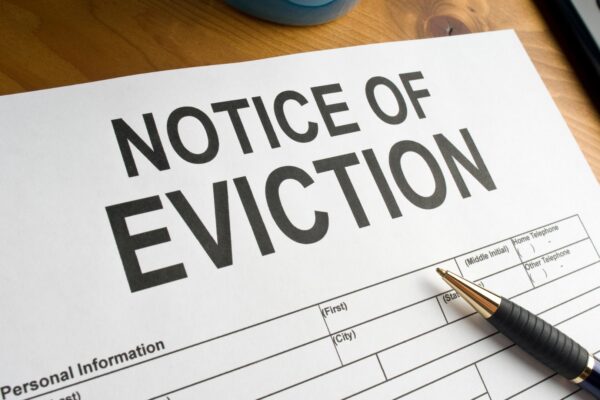How to Evict a Tenant: Step Three: Warrant of Possession
This guide is the last of the three-step process to evicting a tenant. To get to this point, a landlord must have:
- served notice and waited for it to expire
- applied to court for a possession order and then waited until that has expired
This article explains what happens when the possession order expires (i.e. at the end of stage 2, and into the final stage).
You will need to apply to court for a final time to get a Warrant for Possession. This is the final legal step. Once a warrant is made, your property will be added to the end of the queue of properties the court’s bailiffs have been instructed to gain possession of.
Part One: how to serve eviction notices
Part Two: how to gain a possession order
Part Three: this post

Applying to Court for a Warrant for Possession
If your possession order was outright
If you have received an outright (i.e. not a suspended) Possession Order, then you apply for the Warrant by completing the N325 form and sending it to the court. Like applying for a Possession Order, you should choose the court closest to the property that handles evictions.
If your possession order was suspended
If you received a suspended Possession Order, and the tenant has broken the conditions of that order, then you will need to use a slightly different form.
You will need form N325A. You’ll need to attach evidence that the tenants have not followed the terms of the suspension of the Order, and a payment of £121.
Once the Warrant is Issued
The court will receive your request for a warrant and let you know when they have issued the warrant. You don’t need to notify the tenant. The court will do this.
The warrant will be valid for 12 months from being issued and the court will send you an eviction date. This is the date that bailiffs have scheduled to regain possession of the property for you.
Tenants Can Still Appeal
At this point, the tenant can still try to challenge the eviction. What they’re able to do depends on what kind of notice the landlord first served and the particular circumstances of the tenant.
If the Possession Order was gained via:
- a Section 21 notice
- a mandatory ground for a Section 8 possession
then the court has the power to suspend the warrant for up to 2 weeks only.
If the Possession Order was gained via a discretionary ground for a Section 8 possession notice, then the court has no such limitations on how it can act.
Understanding the Tenant’s Point of View
Previous to the Homelessness Reduction Act (passed 2017, but only enforced from April 2018), tenants often wouldn’t receive housing help from their local authority until a warrant for their eviction has been issued by a court.
This meant that many tenants who can’t pay the rent and need to find social or emergency housing are advised not to move out until a warrant is issued.
In theory, this will no longer be the case, as it has been made clear that, if a tenant is faced with the threat of homelessness, the local council has 56 days to prevent a them from becoming homeless. This 56 days matches the two months’ notice a landlord has to give when issuing an eviction notice.
If you suspect your tenant is threatened with homelessness by the eviction, we would recommend speaking to them and the council about what can be done to help all parties achieve an agreeable outcome.




Start the discussion at community.openrent.co.uk